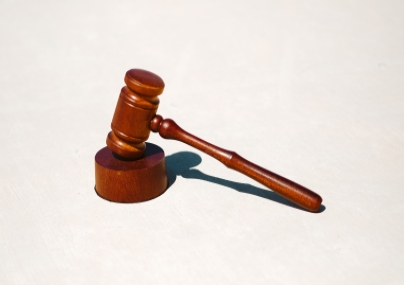Jamie Rowlands, Partner Alice Li, Senior Associate
E: Jamie.Rowlands@gowlingwlg.com E: Alice.Li@gowlingwlg.com
GOWLING WLG
As with other jurisdictions, online marketplaces are relatively well protected in China. Liability for online sales of counterfeit and otherwise infringing items usually lies with the e-shop owners, rather than the online marketplace owing to the “safe harbour” principle. This protects online marketplaces from liability on the basis that they merely host content rather than participate in trading and cannot, therefore, be aware of individual instances of infringing activity. However, case law[1] and legislative developments[2] mean that online marketplaces are required to take IP infringement and takedown procedures increasingly seriously to avoid liability.
The size of the problem:
Online marketplaces in China have developed rapidly in recent years and China now represents the world’s largest online retail market. In 2014, the total value of online sales in China was approximately RMB 2.8 trillion, increasing to approximately RMB 3.8 trillion in 2015[3]. However, according to a recent report[4], over 40% of the items sold online were infringing or of low quality. Alibaba Group reports that 87 million links to infringing products were removed in 2012, increasing to 129 million links in 2014; clearly demonstrating the size of the problem.
The takedown process:
There are several major online marketplaces in China, such as the Alibaba Group (Alibaba, 1688, Aliexpress, Taobao, and Tmall), as well as JD, Made-in-China and DHgate. Within these marketplaces, Alibaba Group has established relatively comprehensive online complaint procedures for IP infringements. JD, Made-in-China and DHgate have also recently introduced online complaint portals for handling IP infringement, which follow different (albeit broadly similar) procedures to that of Alibaba Group. Given the number of online marketplaces it can be a daunting prospect to establish an efficient online enforcement strategy. However, with some basic tips at your fingertips, positive steps can be made.
1. Know the procedure
It is important that the rights holder understands the complaints procedure for each relevant online marketplace. For example, AliProtect (legal.alibaba.com) is used for complaints relating to sales on Alibaba, 1688 and Aliexpress; and TaoProtect (qinquan.taobao.com) is used for complaints relating to Taobao and Tmall.
2. Plan ahead
The process for trade mark and copyright complaints is more advanced and streamlined than the process for patents (whether invention, utility or design), which leads to a generally much faster takedown rate. However, irrespective of the type of infringement, it is important to ensure that the rights holder understands the documentary evidence required to prove its complaint. Updating and collating the wide range of documents required in support of a takedown request can be time consuming, particularly for a design or utility patent infringement which, for certain online marketplaces, will also require an evaluation report[5].
3. Be prepared to explain your case in full
There is no substitute for having prepared the case in full prior to submitting the takedown request. For patent infringement, this can include having to file a detailed infringement analysis. To support complaints, even where a dedicated online procedure exists, making direct contact (via the phone or otherwise) to a relevant contact at the online marketplace to form and maintain good communication can also aid the process and cut through difficulties.
4. Counter-notices
Once the takedown request and supporting documents have been submitted, the seller may be given an opportunity to submit a counter-notice in defence. Difficulties can arise for the rights holder at this stage, as even a simple infringement case can be made excessively technical in an attempt to “muddy the waters”. This will inevitably cause delays and may take the assessment beyond the capability of the online marketplace, causing the infringing links to remain on the online marketplace.
The submission of a substantive counter-notice may, however, be indicative of a seller who is infringing on a large scale and who might, therefore, be a strategically important target. Always remember that online enforcement should not be viewed in isolation and it may be that the online seller warrants further investigation with a view to taking offline action against it. Offline and online enforcement strategies should be considered together as much as possible.
5. The decision
Once all the information, including the seller’s counter-notice and the rights holder’s response, has been received, the online marketplace will make a decision whether or not to remove the infringing link. The time that any successful takedown takes varies significantly and, frustratingly, can still take far too long.
The value of a robust online enforcement strategy:
Whilst there are still challenges for any online enforcement program in China, the landscape appears to be slowly improving for IP rights holders. Currently, to benefit from the IP protection available on online marketplaces, rights holders must be willing to commit time to regularly sweeping for infringements and rigorously filing complaints. However, maintaining a robust online enforcement strategy is an essential tool which, coordinated to work alongside an effective offline strategy, can deliver demonstrable results and play an important role in an overall IP protection and enforcement programme in China and beyond.
1 For example, E-land v Taobao (2011) Hu Yi Zhong Min Wu (Zhi) Zhong Zi No. 40.
2 The latest draft amendment to the Chinese Patent Law expressly confirms that, in circumstances where IP infringement has been reported to the online marketplace and it has failed to remove the infringing products, the online marketplace shall bear joint liability for the infringing products.
3 From a report by iResearch Consulting Group (www.iresearchchina.com).
4 Produced by the Standing Committee of the National People’s Congress dated 2 November 2015.
5 FAn evaluation report of a patent is prepared by the State IP Office ("SIPO") at the request of the patentee or interested party. SIPO prepares the report by analysing and evaluating the relevant utility model patent or design patent to determine its perceived validity. It takes at least two months to produce.


